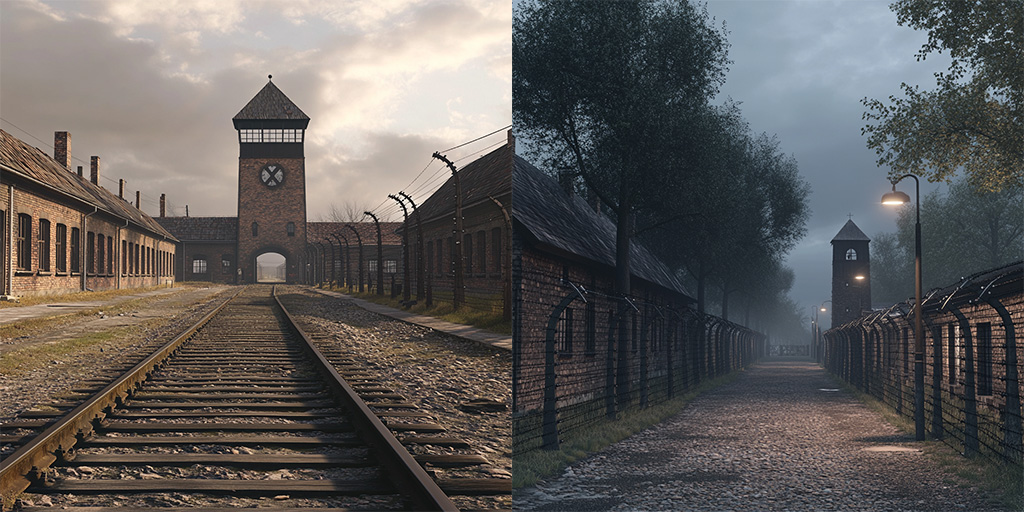
AI and Holocaust Memory – Online Research Roundtable
Monday 13th October, 2.30-4pm (3.30-5pm CET)
‘AI’ has become a hot topic in Holocaust memory practice, but what does current research tell us about the role AI and machine learning systems play in shaping remembrance of this past? This interdisciplinary roundtable introduces colleagues from education sciences, communication science, media and cultural studies, and history to explore this topic from empirical and theoretical perspectives, examining practice, logics, users, platforms, and pedagogy, to offer a holistic review of ‘AI’ in our field.
The roundtable seeks to probe behind the headlines and public debates to present a research-informed intervention in current discussions.
Each speaker will present for c. 10 minutes, and we will then open up for public discussion.
Speakers:
Prof. Tobias Ebbrecht-Hartmann will discuss AI-generated visual content about historical events in context of historical representations and concepts of authentication and imagination, and contrast AI-driven image generation with practices of automated visual analysis and image detection.
Dr. Stefania Manca will focus on the educational dimensions of generative Artificial Intelligence, examining how these technologies can influence Holocaust education by reshaping pedagogical practices, mediating historical knowledge, and raising critical questions about opportunities and risks in the transmission of historical memory.
Dr. Mykola Makhortykh will discuss methodological aspects of studying how AI (mis)represents the Holocaust and challenges (but also possibilities) of integrating AI with research on Holocaust memory and its distortions.
Prof. Eva Pfanzelter will discuss ethical questions related to the use of AI in historical and memory research, the challenges that come with the black-box uses of AI models and eXplainable AI (XAI) approaches for Holocaust History and Memory Studies.
Prof. Victoria Grace Richardson-Walden will focus on the need to understand AI models and their effect on Holocaust memory and education in their specific techno-social contexts, questioning the language we feel comfortable with in Holocaust studies when exploring media, and presenting an analysis model based on entanglement.